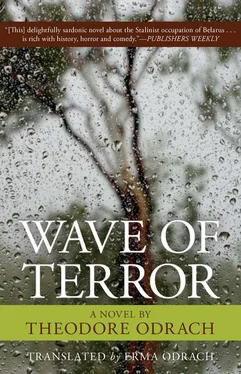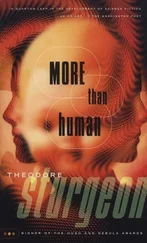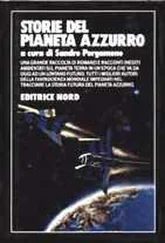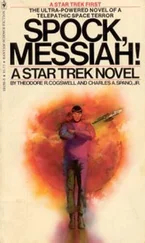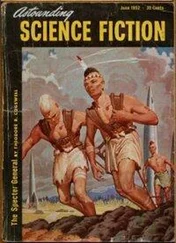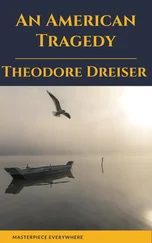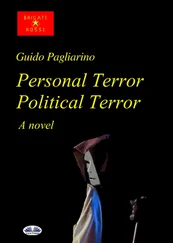When the band began a slower tune, a voice called out happily from behind Kulik. It was Marusia. “Ivan Demianovich! We were looking all over for you.” Then curiously, “Who are you looking at over there?”
Kulik shrugged, “Oh, just Yeliseyenko, the Chief of Education.” Taking her hands in his, he asked, “May I have the next dance?”
On the stage, the musicians were thundering out “Rebecca,” a popular love song about a Polish Jew in love with a beautiful woman. Although the song was very well received, it seemed out of place and not in keeping with the political mood of the day. It was just a matter of time before it, along with countless other songs, would be banned by the government, deemed petit bourgeois. But tonight no one seemed to care about that.
The drummer, a long-legged youth not much over twenty, whacked at his drums repeatedly, speeding up the tempo, slowing it down, then speeding it up even faster than before. When the saxophones suddenly erupted, the dancers, drunk and dizzy, became deafened by the musical explosion.
In the middle of all of this were Kulik and Marusia. Her eyes were shining; she looked radiant. At every step they took together, Kulik felt thrilled at how slight her form was and how delicate her features. When he took her hand in his and pressed it gently, she made no objection. He felt the warmth of her body next to his, and he knew that he had fallen in love with her. Pulling her toward him, he kissed her softly on her pale cheek. But to his dismay, she gasped and shrieked. Pushing him away, she said, “What was that for? Isn’t it enough that I dance with you?”
Kulik’s heart leaped. He couldn’t believe her words. How mean-spirited, how utterly cruel she was. Why was he allowing this flighty, hypocritical small-town girl to toy with his emotions like this, to trample all over him? It pained him that she should take offence at a perfectly sincere and spontaneous gesture on his part. He felt mortified, ripped into a million pieces.
They danced on in awkward silence. Kulik hesitated to look at her. He thought sadly, “How tragic. So beautiful, so delicate, like a flower of the marsh, and yet so distant, so foreign.” A chill passed through him; she suddenly felt cold and lifeless, like a porcelain doll.
When the music finally stopped, as he was walking with Marusia across the floor, Kulik was more than relieved to come across Sergei, who was leaning against the wall with a drink of spiked cranberry lemonade. They had just joined him, when, from the doorway, a voice shot out in a squeaky falsetto. It belonged to a slight man with epicene features. “Marusia Valentynovna! Over here!”
“Why, if it isn’t Nikolai Nikitich!” Marusia waved at him excitedly. “How good it is to see you!” Then to her companions, and taking Nikolai by the hand, “May I introduce Nikolai Nikitich, the exceptional and renowned Pinsk poet. I’m sure you’ve heard of him.”
Nikolai Nikitich looked around briefly and shook his head. “No, no, nyet nyet , Marusia Valentynovna. Haven’t you heard? I’ve changed my name to Nikolai Kopitkin.” Then nudging her in the arm almost playfully and winking, “A little Russian flavor’s never been known to hurt a man, if you know what I mean.”
He ignored Kulik and Sergei, addressing Marusia, “Haven’t I seen these two fellows someplace before? Oh, yes, now I remember. I saw them at the teachers’ conference.” Pursing his lips, he looked Kulik over. “Why, if it isn’t Ivan Kulik. Aren’t you the one who gave that ghastly speech in Ukrainian? I must say, you certainly know how to stir things up. You had the participants virtually at each other’s throats. This is what I think of you and your Ukrainian schools. Piffle!” Then back to Marusia again, “Certainly you didn’t come here with these two fellows?”
Before Marusia had a chance to respond, Kulik, feeling tremendously insulted, spoke up, intending to put the poet in his place. “Nikolai Nikitich, have you ever gone to the zoo?”
Nikolai had not expected such a peculiar question. He crinkled his nose and cleared his throat. “Er, unfortunately, no.”
“Well, in Prague I saw a beautiful chimpanzee whose imitation of humans was remarkable. The Czechs named him Potapka, which means imitator. If I might add, there’s a striking resemblance.”
No one had ever dared talk to Nikolai like that. He shot back haughtily, “In Prague, you say? I didn’t think moujiks ventured that far.”
“Oh, stop!” Marusia could barely contain herself. Looking profoundly embarrassed, she took Nikolai’s arm, and hurriedly changed the subject. “Tell me, Nikolai, are you still writing?”
“Yes, naturally! How can I not write! Poetry is my muse, my elixir.”
Marusia went on. “You have such a wonderful style. Do you remember last summer when you read to me from one of your books?”
“Yes, indeed, from The Forgotten Book Of Verse , if I’m not mistaken. I also read to you some of my reviews, which, if I may say so myself, were extremely favorable.”
“Allow me to recite to you from my most recent collection. As you’ll notice, my poems are no longer frivolous. They are now fearless and full of hope, and in them I give answers and an insight into what is going on around us:
Hunger, cold and want
Months, even years of struggle
Listen for the Revolution …”
As he began the next line, Sergei cut him off. “Hey, Nikolai, why don’t you try something like this:
Hunger, cold and want
I plop on my bed
And snore and snore and snore some more …”
“Seryoza!” Marusia stamped her foot. “How can you be so rude?” Then apologetically to Nikolai, “Forgive Seryoza. As you can see he’s had too much to drink.”
At the sound of the word Seryoza , Nikolai froze on the spot and his eyes widened. He was shocked that Marusia had addressed Sergei in the diminutive, Seryoza , suggesting to him the two were more than the casual acquaintances he had assumed them to be. It was plain and simple: Marusia Valentynovna was associating with moujiks ! “Excuse me, Marusia Valentynovna,” he said quickly, hoping that no one had noticed that he was with these people, “I must be off. Give my regards to your father and mother. And how’s Lonia? Is he still in Lvov? Well, goodbye.”
The band began the rhumba. Kulik found himself mouthing the lyrics in Polish. Again he was alone. Sergei had gone off somewhere with Marusia. Kulik focused on trying to find a partner. He looked along the wall, around the podium, by the entranceway, but all the women seemed to be taken. His eyes strayed across the floor. Yeliseyenko caught his attention again. He was still dancing with the same woman. Kulik could now see her more clearly. She was very pretty, with big black eyes and a long, slender neck. There was something unusual about her and curiously familiar. Where had he seen her before? He watched her move across the floor. She was an excellent dancer, light on her feet, whirling and twirling gracefully, in a soft velvet dress that clung to her shapely body. It was almost as if she was oblivious to her partner and was dancing alone.
When finally the music stopped, Kulik, almost involuntarily, found himself drifting toward her. Who was this girl? As he moved closer, Yeliseyenko noticed him, and frowned. “You! I remember you from the conference. What do you want? Do you intend to ask this young lady to dance?”
Kulik hesitated a moment, then, ignoring Yeliseyenko, said to the girl, “Would you do me the honor?”
She smiled, nodded to Yeliseyenko, gave Kulik her arm and walked with him to the middle of the floor. She was as tall as Kulik, and when they danced, their eyes met. Where had he seen this unusual, lovely creature before, with eyes as black as the night? Suddenly he was seized by a wave of excitement. It was she, he realized, the girl from St. Barbara’s Church! She drew back, startled. “Why are you staring at me like that?”
Читать дальше
